Historical events on February 5
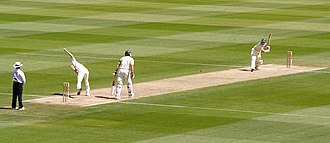
FEBRUARY 5, 1923
Australian cricketer Bill Ponsford made 429 runs to break the world record for the highest first-class score.
Cricket is a bat-and-ball game played between two teams of eleven players on a field, at the centre of which is a
Read More
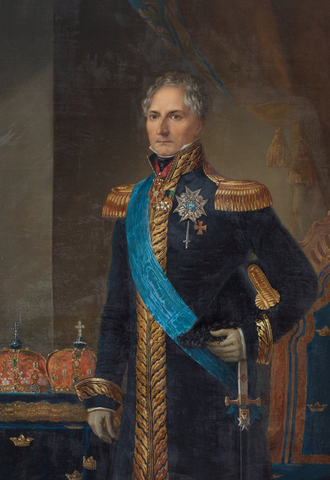
FEBRUARY 5, 1818
Charles XIV John (pictured) succeeded to the thrones of Sweden and Norway as the first monarch of the House of Bernadotte.
Charles XIV John was King of Sweden and Norway from 1818 until his death in 1844 and the first monarch of the
Read More
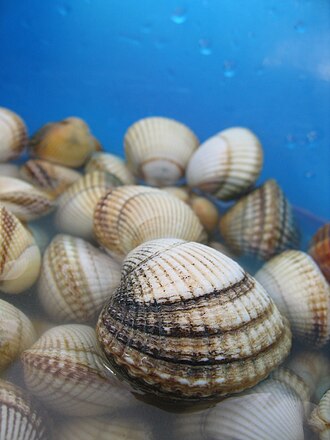
FEBRUARY 5, 2004
At least 21 cockle-gatherers were drowned by an incoming tide in Morecambe Bay, England, prompting the establishment of the British government's Gangmasters Licensing Authority.
The common cockle is a species of edible saltwater clam, a marine bivalve mollusc in the family Cardiidae, the cockles. It is
Read More
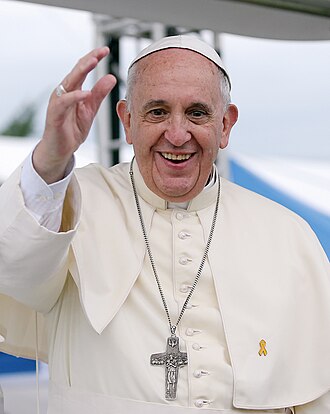
FEBRUARY 5, 2019
Pope Francis became the first pope to celebrate a papal Mass in the Arabian Peninsula.
Pope Francis was head of the Catholic Church and sovereign of the Vatican City State from 2013 until his death in 2025.
Read More
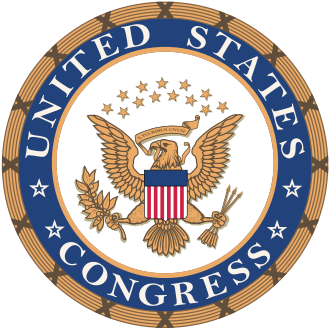
FEBRUARY 5, 1917
The U.S. Congress overrode President Woodrow Wilson's veto to pass the Immigration Act of 1917, establishing new restrictions on immigrants, including the wholesale ban of people from much of Asia.
The United States Congress is the legislative branch of the federal government of the United States. It is a bicameral legislature, including
Read More

FEBRUARY 5, 2009
The United States Navy guided missile cruiser Port Royal ran aground (pictured) on a coral reef off the island of Oahu.
The United States Navy (USN) is the maritime service branch of the United States Department of Defense. It is the world's most
Read More

FEBRUARY 5, 2000
Second Chechen War: As the Battle of Grozny came to a close, Russian forces summarily executed at least 60 civilians in Grozny's Novye Aldi suburb.
The Second Chechen War took place in Chechnya and the border regions of the North Caucasus between the Russian Federation and the
Read More
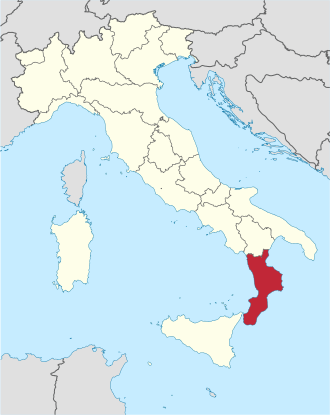
FEBRUARY 5, 1783
The first of five strong earthquakes hit the region of Calabria on the Italian Peninsula, killing more than 32,000 people over a period of nearly two months.
The 1783 Calabrian earthquakes were a sequence of five strong earthquakes that hit the region of Calabria in southern Italy, the first
Read More
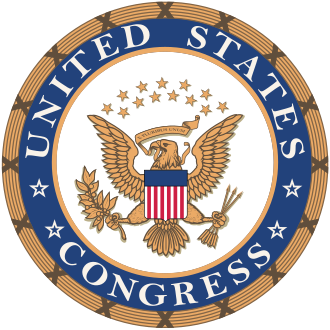
FEBRUARY 5, 1861
In a speech before the U.S. Congress, Representative John Edward Bouligny refused to join his fellow Louisiana congressmen in heeding the state's secession convention and resigning.
The United States Congress is the legislative branch of the federal government of the United States. It is a bicameral legislature, including
Read More
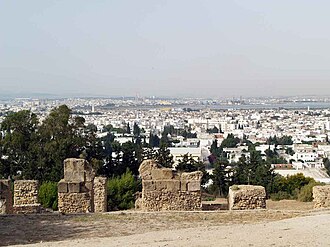
FEBRUARY 5, 1985
The mayors of Carthage and Rome signed a symbolic peace treaty to officially end the Third Punic War, 2,134 years after it began.
Carthage is a commune in Tunis Governorate, Tunisia. It is named for, and includes in its area, the archaeological site of Carthage.

FEBRUARY 5, 1913
Claudio Monteverdi's last opera, L'incoronazione di Poppea, was performed theatrically for the first time in more than 250 years.
Claudio Giovanni Antonio Monteverdi was an Italian composer, choirmaster and string player. A composer of both secular and sacred music, and a
Read More
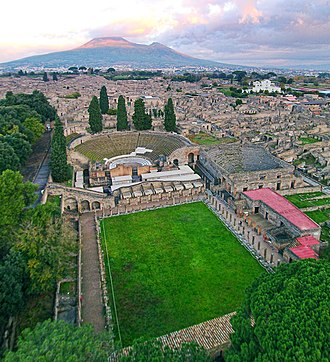
FEBRUARY 5, 62
Pompeii was severely damaged by a strong earthquake, which may have been a precursor to the eruption of Mount Vesuvius that destroyed the town 17 years later.
AD 62 (LXII) was a common year starting on Friday of the Julian calendar. At the time, it was known as the
Read More
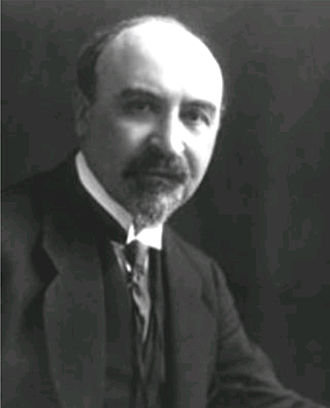
FEBRUARY 5, 1909
Belgian chemist Leo Baekeland announced his invention of Bakelite (production device pictured), the world's first synthetic plastic.
Leo Hendrik Baekeland was a Belgian chemist. Educated in Belgium and Germany, he spent most of his career in the United States.
Read More
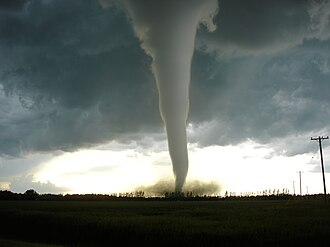
FEBRUARY 5, 2008
Eighty-seven tornadoes occurred over the course of the Super Tuesday tornado outbreak across multiple U.S. states, causing 56 deaths and over $1 billion in damage.
A tornado is a violently rotating column of air that is in contact with the surface of Earth and a cumulonimbus cloud
Read More

FEBRUARY 5, 1958
After a mid-air collision with a fighter plane during a practice exercise off Tybee Island, Georgia, a U.S. Air Force bomber jettisoned a Mark 15 nuclear bomb, which was presumed lost.
The Tybee Island mid-air collision was an incident on February 5, 1958, in which the United States Air Force lost a 7,600-pound
Read More
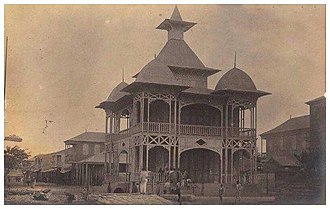
FEBRUARY 5, 2004
The National Revolutionary Front for the Liberation of Haiti captured the city of Gonaïves, starting a coup d'état against President Jean-Bertrand Aristide's government.
The National Revolutionary Front for the Liberation and Reconstruction of Haiti was a rebel group in Haiti that controlled most of the
Read More
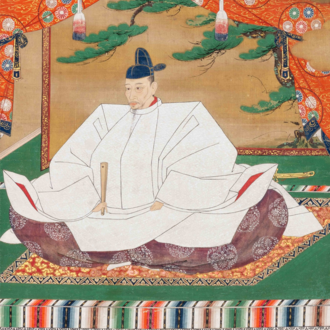
FEBRUARY 5, 1597
As part of enforcing Toyotomi Hideyoshi's ban on Christianity in Japan, twenty-six Catholics, a mix of European missionaries and Japanese converts, were executed (depicted) near Nagasaki by crucifixion and impalement.
Toyotomi Hideyoshi , otherwise known as Kinoshita Tōkichirō and Hashiba Hideyoshi , was a Japanese samurai and daimyō of the late
Read More
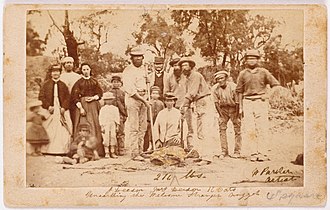
FEBRUARY 5, 1869
Prospectors in Moliagul, Australia, discovered the largest alluvial gold nugget ever found, known as the Welcome Stranger.
Moliagul is a locality in the Shire of Central Goldfields and Shire of Loddon, Victoria, Australia, located 202 kilometres (126 mi) northwest of
Read More
Showing selected events of February 5
February Events
- February 1
- February 2
- February 3
- February 4
- February 5
- February 6
- February 7
- February 8
- February 9
- February 10
- February 11
- February 12
- February 13
- February 14
- February 15
- February 16
- February 17
- February 18
- February 19
- February 20
- February 21
- February 22
- February 23
- February 24
- February 25
- February 26
- February 27
- February 28
- February 29

